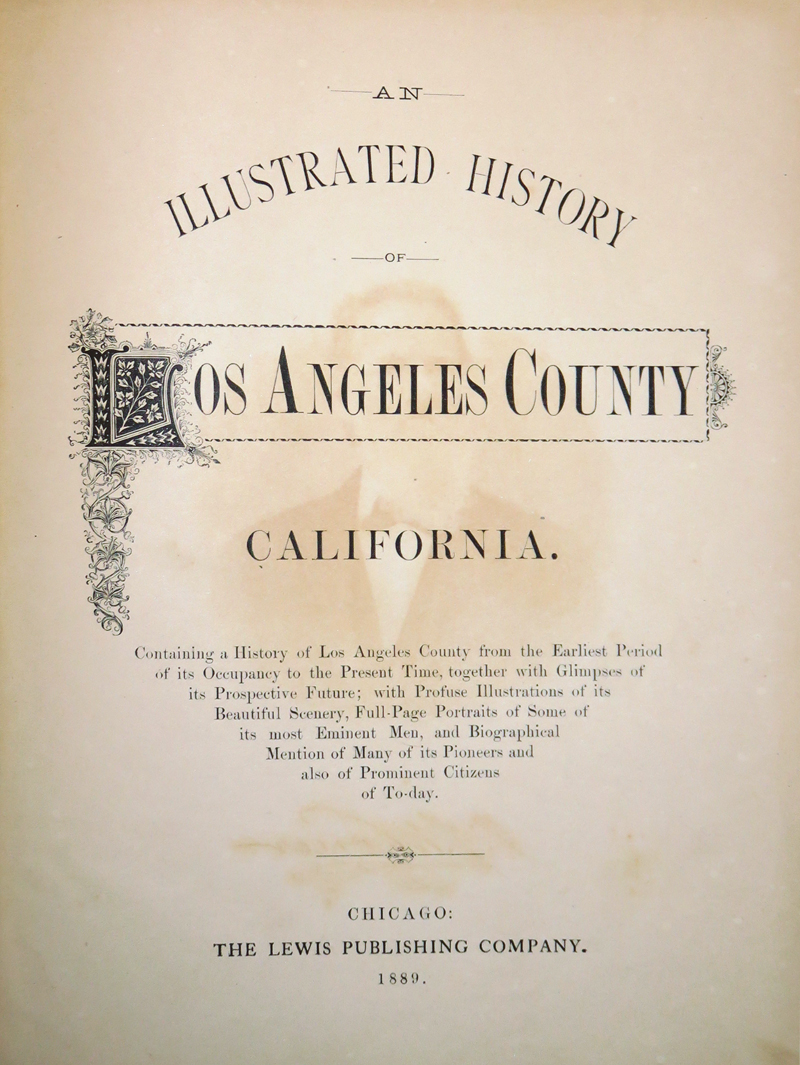|
|
Reginaldo F. del Valle.
Pen Pictures From the Garden of the World:
An Illustrated History of Los Angeles County, Calif.
Chicago: The Lewis Publishing Co., 1889, pp. 189-190.
|
Hon. R.F. Del Valle was born in Los Angeles, December 15, 1854, one of the oldest and most distinguished Spanish families in this section, his parents being Ygnacio and Ysabel (Vareta) Del Valle [sic; s/b Varela]. The father was one of the best known and most highly esteemed gentlemen of Southern California, of lofty character and unblemished reputation. He died in 1880, at the age of seventy-two years. Young Del Valle passed his childhood and youth between the city home of his parents and their home at the "Camulos" Ranch owned by them. This ranch has become famous in story as the scene of Helen Hunt Jackson’s "Ramona." He received the best education locally attainable, and graduated after a fall course in Santa Clara College, at San José, in 1873. He then studied law in San Francisco and was admitted to the bar of the Supreme Court in 1877. His energy and ability were soon recognized and he became an acknowledged leader in the party of his choice, the Democratic, at the age of twenty-five. In 1879 he was elected a member of the Assembly from his native county. The next year he was elected Presidential elector on the Hancock ticket, and re-elected to the Assembly. He served with such credit and honor to himself, such acceptance to the party at large, and such satisfaction to his constituency, that in 1882 he was unanimously nominated as State Senator from this county and elected by a large majority. He was chosen as president pro tem of the Senate in 1883, and was a candidate for Congress from the Sixth District of this State in 1884. His official services are owing to his fealty to party interests and a sense of duty to his country rather than to personal ambition. What he may feel of that infirmity of noble minds is impenetrably hidden under a natural modesty that is as striking as it is attractive. Among our many distinguished fellow-citizens there is no one whose character and ability have endeared him to a wider circle of friends, no one who is more warmly esteemed or more cordially respected by those who know him intimately and well or enjoy the privilege of this acquaintance. His latest public service was as chairman of the State Democratic Convention in this city in May, 1888, and that was so ably performed that it attracted general commendation. From the opening to the close of the convention he filled the difficult position with a skill, adroitness and tact that shewed him to be a leader of men. His keenness of perception and knowledge of parliamentary forms and rules, together with his genial appearance, his quick and graceful movements, his firm suavity, with gavel in hand, alike ready to accord proper recognition to a member or rap the discordant assembly to order, the clearness of his decisions and the emphasis and force of his remarks, whether directed to the maintenance of order or the dispatch of business, elicited the most favorable comments and were worthy of all praise as models of courtesy and firmness. Both the marked deterioration in political methods, the absence of elevated aspiration and broad statesmanship, have rudely dissipated whatever charm public life may have once held for Mr. Del Valle, and he very decidedly prefers the practice of his profession and the quiet pursuits of private life. Text has been divided into paragraphs for ease of reading; it's three long paragraphs in the original.
|
• C. Rasmussen Story
Ygnacio Family Tree
Ygnacio 1808-1880
Family History: Del Castillo 1980
Del Valle Branding Iron, RSF 1830s-40s x5
Livestock Ledger 1853
History of Ownership
Wolfskill Foreclosure 1864
Labor Records
1919-1924
Ygnacio's L.A. Property 1871
Envelope: Reginaldo to Ysabel 1877–1883
James Walker Art
(1818-1889)
Ygnacio Bio 1889
Ysabel 1837-1905
Description 1879
Bedroom ~1890
Reginaldo Nominated Lt.Gov. 1890
Pico Oil Connection
Probate Filing, Death of Juventino, 1919
Reginaldo 1854/1938
Reginaldo Bio 1889
Lucretia 1892/1972 (Multiple Entries)
Nor. Cal. Basket mid-1800s
Bell, Portrait Come Home 10/28/2017
Reginaldo Recognized at UCLA 5/24/2019
|
The site owner makes no assertions as to ownership of any original copyrights to digitized images. However, these images are intended for Personal or Research use only. Any other kind of use, including but not limited to commercial or scholarly publication in any medium or format, public exhibition, or use online or in a web site, may be subject to additional restrictions including but not limited to the copyrights held by parties other than the site owner. USERS ARE SOLELY RESPONSIBLE for determining the existence of such rights and for obtaining any permissions and/or paying associated fees necessary for the proposed use.























